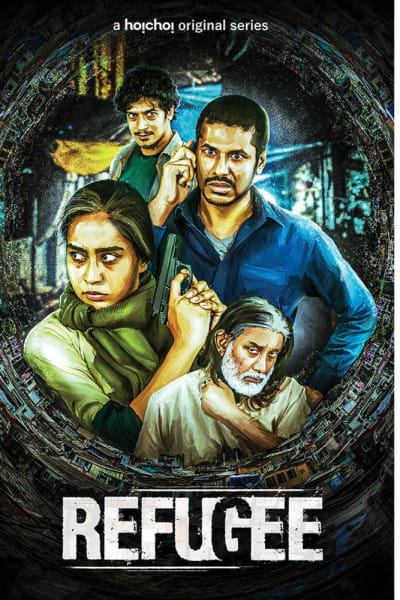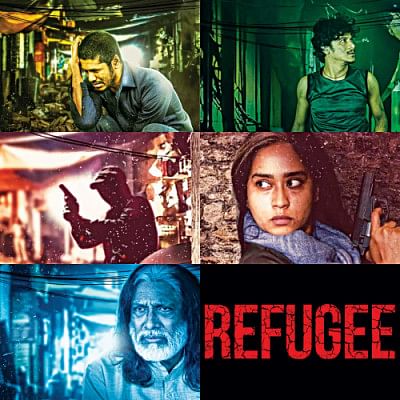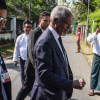Does ‘Refugee’ do justice to the portrayal of the Bihari community?

The new Hoichoi crime-thriller web series "Refugee," starring Afzal Hossain, Zakia Bari Mamo, and Sohel Mondol, attempts to portay the unexplored lives of the Bihari community in Bangladesh, who have been living a life of neglect and abuse as "stranded Pakistanis," who allegedly opposed the 1971 Liberation War.
This series has become somewhat of a hot topic among audiences in recent times, for its plot that revolves around life in the Geneva Camp, a setting which is rarely seen in Bangladeshi media.
Directed by Imtiaz Hossain, the series is set in 2007, when Bangladesh was discussing whether or not to grant the member of the Bihari community citizenship – it delves into their restlessness at the time.
The plight of a group of people who can neither integrate into mainstream Bangladeshi culture nor migrate back to Pakistan is a classic example of being caught between a rock and a hard place.
The plot revolves around Iqbal (Sohel Mondol), a drug dealer at the Geneva Camp, whose circumstances force him to become an informant for police officer Maria (Zakia Bari Mamo).
While the series had the potential to be a thrilling experience for its viewers, it falls short due to its predictable plot and lack of genuine emotions.
The story progression is convoluted and slow-paced, with only six episodes in the first season. The script is riddled with poor dialogue and characters who are difficult to relate to, and as a result, it fails to leave an impression. Furthermore, the plot lacks the necessary depth, making it highly predictable. Finally, the representation of a refugee camp, which is comparatively new territory for directors, is underwhelming and unsatisfying.
However, the series does have some good things going for it, namely the impressive colour-grading and cinematography and brilliant performances by a talented cast.

Cinematographer Tuhin Tanzimul and colourist Chinmoy Das use a dark green overtone to emphasize the Biharis' loyalty to Pakistanis, as well as the cramped and claustrophobic life in the refugee camps.
Actress Zakia Bari Mamo takes a risk by playing the character of an investigative police officer in this series, as she played a similar character in the critically acclaimed "Mohanagar". It is difficult to portray two similar characters in different ways, but she did it brilliantly.
Sohel Mondol has already received applause for his acting in "Taqdeer" and "Boli". To his credit, he made the character believable.
Afzal Hossain's portrayal of a terrorist, in my opinion, needed a little more backstory and buildup. He was on the screen for very little time compared to the other characters, but he still showed charisma during that time. But it feels like the director could not use Afzal Hossain in the proper way in this series.
Apart from this, Sharif Siraj caught the viewers' attention with his natural acting and fluent dialogue delivery, amidst a cast of high-profile actors.
The portrayal of sexual abuse of men in prison is what grabbed my attention the most in this series. In a subtle manner, the director depicts a man's helplessness, mental trauma, and distress with just two dialogues.
Despite its many flaws, "Refugee" is worth seeing once for its portrayal of some social issues that requires actual courage to execute.

 For all latest news, follow The Daily Star's Google News channel.
For all latest news, follow The Daily Star's Google News channel. 







Comments